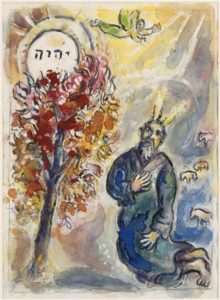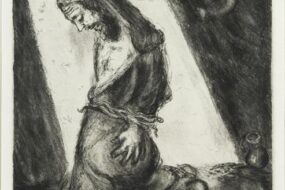November 4, 2017 • Life for Leaders
They love the place of honor at banquets and the most important seats in the synagogues; they love to be greeted with respect in the marketplaces and to be called “Rabbi” by others.
Matthew 23:6-7
Someone once told me a fable surrounding Jesus’s entry into Jerusalem on Palm Sunday. According to that fable, the foal, on which Jesus rode into Jerusalem, returned to the stable where he met his mother. “Mother!” the young donkey said excitedly, “You won’t believe what happened to me today. I entered Jerusalem and everyone was cheering and clapping for me!” It’s a charming children’s story, but it makes an important adult point. Leaders are easily misled by the acclaim that comes with leadership.
We’ve been reflecting on the encounter between Jesus and the religious leaders in Matthew 23. The passage is a challenging and timely warning to all of us in leadership about how, despite our good intentions, good leaders can go bad. In an earlier devotional, I’ve reflected on how Jesus challenges us to create a leadership environment that provides help and hope, rather than merely piling on oppressive expectations on the people we lead. In a later one, I reflected on the importance of focusing on the hidden yet substantive aspects of leadership and not just its visible expressions. In today’s text, Jesus deals with the problems that come with the rewards of leadership.
As our business flourished, my wife and I decided to build a new house. We found a beautiful, waterfront lot and built our dream home. After we finished, we held an open house for our family and friends. One of the elderly saints of our community, who had been a life-long mentor and like a mother to both my wife and me, came up at our open house and said, “What a lovely home, Uli. You deserve this!” I smiled at her comment and murmured my gratitude. But, I have to admit, what she said made me profoundly uncomfortable. On reflection, I think what discomforted me most was that part of me agreed with her. Of course I deserved this. I had worked hard and become successful. Didn’t I deserve to bask in the glory of that success?
I have to confess—much as it might make me squirm—I identify with the Pharisees in today’s text. I too like “the place of honor”, “the most important seats”, “to be greeted with respect” and “to be called ‘Rabbi’ (teacher).” Whether we like it or not, being a leader brings recognition. Like success itself, recognition isn’t necessarily a bad thing. Still, it’s easy to fall in love with both. It’s difficult to hold leadership, particularly its successes and rewards, lightly.
I love Marc Chagall’s painting Moses and the Burning Bush. It reminds me of the fountainhead event where God summons Moses to become a leader. I find the image of the burning bush particularly intriguing. The glory of God is revealed in a bush, and the bush is not consumed. That’s helpful in the context of today’s text. In the end, anything that can meaningfully be described as success or reward is of and to God’s glory. It doesn’t belong to us, nor do we “deserve” it. It is wholly other, wholly a gift. And yet, strangely and wonderfully, it is God’s good pleasure for that glory to indwell the bush of our lives. It is God’s good intention that his glory becomes integrally part of who and what we are. It’s the mystery that the Apostle Paul writes about to the Colossians: “Christ in you, the hope of glory.” (Colossians 1:27b) And yet, we are neither to be overwhelmed by that glory nor to be destroyed by it. That is perhaps the most remarkable gift of all.
How are we, then, to deal positively (i.e., in a non-destructive way) with the prestige, the perks and the “glory” that comes with leadership? Jesus will have more to say on that next time.
CONTEMPLATION:
Take a few minutes to look at and ponder Marc Chagall’s painting Moses and the Burning Bush. What does the painting have to say to you about your leadership?
PRAYER:
God, our Father, Creator of heaven and earth,
We are grateful for the gift of your creation, for its goodness and its beauty. We are even more grateful that you have created the world for your glory to inhabit, particularly through the lives of human beings like us. What a remarkable gift you have given us and what a remarkable vocation you have provided for us.
Help us to regain a sense of that calling, as you did with Moses millennia ago. Meet us today in the ordinary circumstances of our lives, as you met Moses tending sheep in the barren wilderness of Sinai. May we again see your creation and our lives ablaze with your presence and your glory.
We ask in Jesus’s name, Amen.
Explore more at the Theology of Work Project online commentary: Jesus, the Image of the Invisible God (Colossians 1:15–29)

During his adult life, Uli Chi has lived and worked in the intersection between business, the academy and the church. He has had the privilege of serving as past Board Chair of Regent College in Vancouver, BC, as current Vice Chair of the Board of the Max De Pree Leadership Center at Fuller Seminary, and as current Chair of the Executive Committee of the Center for Integrity in Business at Seattle Pacific University. He has also been involved in all aspects of local church leadership, including as a member of the adult ministries team’s teaching faculty at John Knox Presbyterian Church in Seattle.
Click here to view Uli’s profile.





